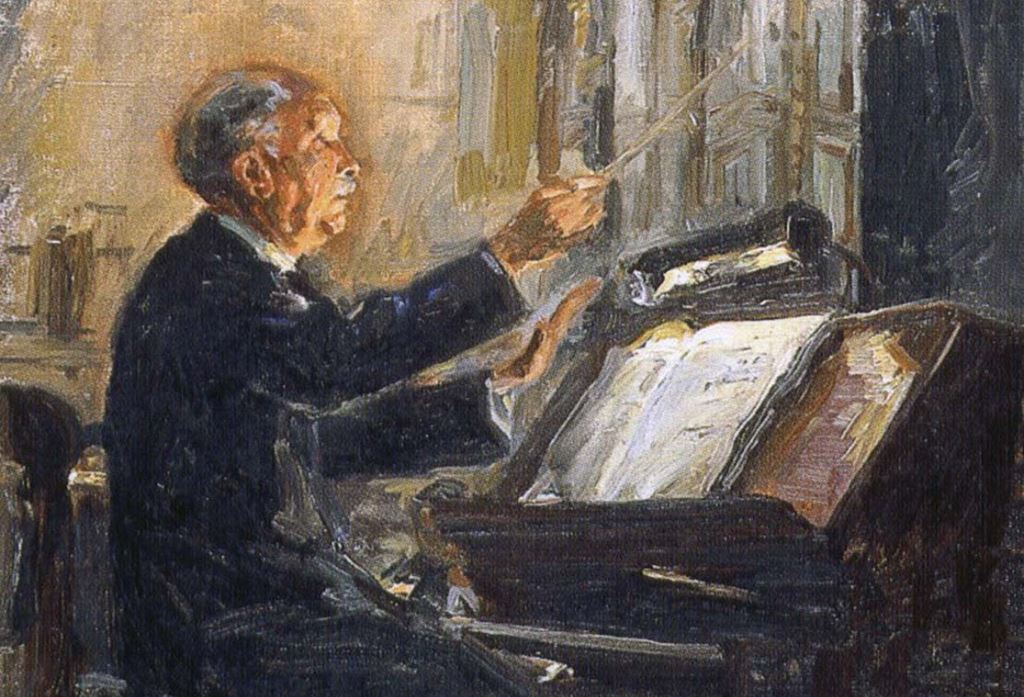He composed his first composition at the age of six: Who is Richard Strauss?
German composer and conductor Richard Georg Strauss, known especially for his opera works, is among the important names of the Romantic Period.

Richard Strauss, who was born in Munich, Germany, in 1864, started his musical education as a child and composed his first composition at the age of six. Just like Mozart and Brahms, Strauss received his musical talent and basic musical knowledge from his father, who played the horn in the state opera of his time.
Interestingly, Strauss, who had admired Richard Wagner's works since his childhood, was deprived of Wagner operas for a long time because his father banned them and could not study his scores.
He gave his first concert in Vienna at the age of 18 and concentrated on philosophy and art history at university. After completing his education, Strauss moved to Berlin in 1883 and started working as an assistant to Hans von Bülow, one of the most important conductors of the 19th century.
Richard Georg Strauss (11 June 1864 – 8 September 1949) was a German composer and conductor best known for his tone poems and operas. Considered a leading composer of the late Romantic and early modern eras, he has been described as a successor of Richard Wagner and Franz Liszt. Along with Gustav Mahler, he represents the late flowering of German Romanticism, in which pioneering subtleties of orchestration are combined with an advanced harmonic style.
Throughout his career, Strauss combined his composition with conducting. Although most of the works he composed in his early days have been lost over time, it is known that he focused on chamber music. As the years progressed, Strauss's career turned towards orchestral works, and became interested in opera, and his career experienced a breaking point when he met Alexander Ritter.
Ritter encouraged the young composer to move away from the traditional style. In addition, it was thanks to Ritter that Strauss became acquainted with the ideas of Schopenhauer, one of the leading figures of philosophy. Feeling ready to challenge tradition, the composer composed two modern operas, Guntram and Feuersnot, in 1894 and 1901.
Strauss, whose early works were mercilessly slammed by critics, did not lose his motivation to work; With his third work, Salome, he gained the appreciation of both his colleagues, the general audience, and someone he least expected; German dictator Adolf Hitler. Hitler, a devoted Wagner fan, greatly liked the music of Strauss, in whose works he found traces of Wagner.
Strauss never joined the Nazi Party and stayed away from even the greeting of this terrible ideology as much as he could. Strauss, who called Goebbels, Hitler's right-hand man, "a disgrace to Germany", was similarly never liked by Goebbels. Goebbels used the following expressions when talking about Strauss in his diaries:
“Unfortunately, we still need him. But one day we will have our own music and we will get rid of this finished man.”
Strauss is also close friends with Stefan Zweig, one of the leading names in literature. The duo worked together on an opera called “Die Schweigsame Frau,” but the work was banned by the Nazi regime after three performances. Things got complicated when a letter written by the German composer to his friend was examined by the Gestapo and reported to the regime administration. The letter contains the following statements:
“Do you think I care about “Germanness” when taking any step? Was Mozart composing with "Aryan consciousness"? “For me, there are two kinds of people: talented and untalented.”
Although he was dismissed after the letter was examined, "Olympische Hymne", which Strauss composed in 1934, was used in the opening ceremony of the 1936 Berlin Olympics, organized by the Nazi regime to show off its strength to the whole world.
Thanks to his strong connections and influence, he managed to get away from the war with the Strauss family. The esteemed composer said his famous words, which have become one of the symbols of classical music, in Vienna, where he spent the last years of his life:
“I may not be a first-rate composer, but I am the first of second-rate composers.”
We are lucky to be able to hear Strauss's story and music.
